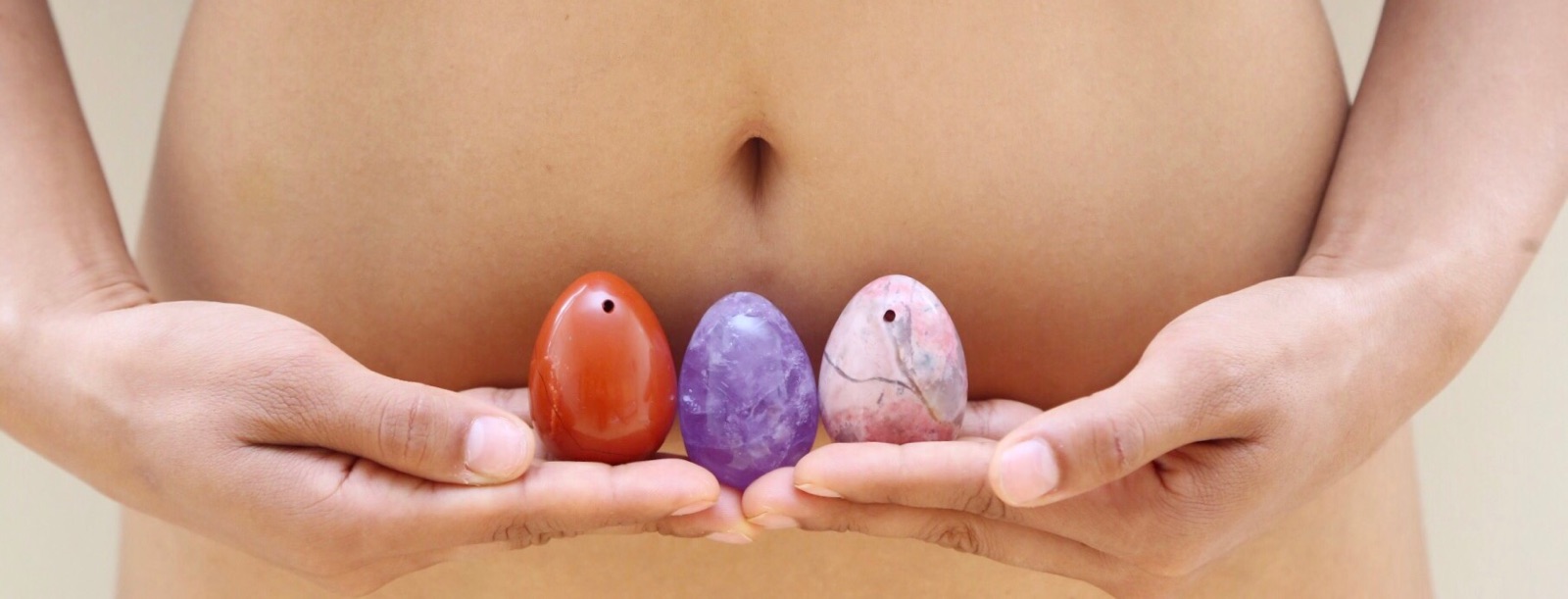The most essential factor to consider when picking out a Yoni Egg is safety. Safety of our Yoni Eggs is determined by two factors.
1. Authenticity
2. Mineral makeup
The most historic and commonly used Yoni Egg is the Jade Egg. Jade is exceptionally hard to find in its pure and authentic form because most distributors of jades contaminate it in order to produce it cheaper.
Jade is a great example of how authenticity and mineral makeup are crucial.
Jade is mostly comprised of iron and is highly dense and nonporous; therefore, it is exceptionally hygienic to use. Jade stays just as pristine as the day you got it. The fact that jade was historically valued is why we still often find counterfeit jade. This means other materials and ingredients, such as dyes, are used to imitate jade. Changes such as these alter the energetic composition of your egg and can put your Yoni at risk.
Another dangerous Yoni Egg that is unfortunately popular is tiger’s eye. Tiger’s eye contains lead or asbestos naturally, and it is therefore toxic to use internally. Many women are just embarking upon their Yoni Egg practice and are not aware of the many things to consider when choosing an egg. The beauty of Yoni Eggs is that they can be used topically even if they are an “unsafe” stone.
Other eggs to look out for because of their naturally toxic mineral contents are sodalite, moonstone, and lepidolite. If you are unsure about a Yoni Egg’s safety, first look up its mineral content and then look up whether the minerals are safe to consume in your body. If they aren’t safe, do not take the risk!
Some women have claimed getting yeast infections when using stones that were later discovered to be synthetic eggs. Other women say they intuitively felt their Yoni was rejecting the stone by releasing it in a way that conveyed it was toxic. There are many incidences of women who have used contaminated Yoni Eggs, and they have shared their unfortunate stories. We cannot compromise the quality of our Yoni Eggs.
Yoni Egg suppliers should ensure the safety of their Yoni Eggs by consulting a third-party professional such as a gemologist at GIA or IGI, or reputable jewelers to properly inspect the crystal with more than just their naked eye, verifying that they are safe for Yoni use.


Is blue howlite safe to use as a yoni egg please
Howlite is white, make sure wherever you get your Yoni Egg they are certified authentic.
Thanks so much for providing individuals with remarkably brilliant opportunity to read from this blog. It really is very lovely.
magnificent post, very informative. I wonder why the other experts of this sector do not notice this. You should continue your writing. I’m sure, you have a huge readers’ base already!
Thank you, google. Please consider joining me here:https://yonigrace.com/product/secret-video-yoga/#reviews